Master of Science with a Major in Biology, Non-Thesis
The mission of the M.S. Degree Program in the Department of Biology at the University of West Georgia is to provide graduate students the knowledge and training necessary to pursue advanced graduate education, professional studies, or employment. In pursuit of this mission, the Department of Biology offers a M.S. Degree Program via either a thesis and non-thesis track.
For more information, please see the Academic Catalog.
The Department of Biology at the University of West Georgia will provide opportunities for personal and professional development to students, faculty, staff, and the broader university community through excellence in teaching, research, and service. Teaching: The Department of Biology will implement and maintain a rigorous curriculum which facilitates an understanding of the major principles and concepts in the biological sciences, promotes critical-thinking and communication skills, and fosters a continuous interest in learning. Research: The Department of Biology will provide and maintain student-oriented research opportunities which will facilitate a comprehensive understanding of biology and the scientific process, enhance the quality of instruction, promote professional development, and further the state-of-knowledge in the biological sciences.
Career Opportunities
Link to Additional Career Information:
https://www.buzzfile.com/Major/Biology
External Resource
Program Location
Carrollton Campus
Method of Delivery
Courses are 100% face-to-face.
Accreditation
The University of West Georgia is accredited by The Southern Association of Colleges and Schools Commission on Colleges (SACSCOC).
Credit and transfer
Total semester hours required: 30
Maximum Hours Transferable into program: 6
A transfer credit evaluation will be completed by the UWG Transfer Team (transfer@westga.edu). Course application to a program is subject to review by the department.
Graduate students may be able to reduce their cost through prior learning, previous degrees earned at UWG, or transfer credits. We have created a tool to help students estimate their tuition costs.
This program may be earned entirely face-to-face. However, depending on the courses chosen, a student may choose to take some partially or fully online courses.
Save money
UWG is often ranked as one of the most affordable accredited universities of its kind, regardless of the method of delivery chosen.
Details
- Total tuition costs and fees may vary, depending on the instructional method of the courses in which the student chooses to enroll.
- The more courses a student takes in a single term, the more they will typically save in fees and total cost.
- Face-to-face or partially online courses are charged at the general tuition rate and all mandatory campus fees, based on the student's residency (non-residents are charged at a higher rate).
- Fully or entirely online course tuition rates and fees my vary depending on the program. Students enrolled in exclusively online courses do not pay non-Resident rates.
- Together this means that GA residents pay about the same if they take all face-to-face or partially online courses as they do if they take only fully online courses exclusively; while non-residents save money by taking fully online courses.
- One word of caution: If a student takes a combination of face-to-face and online courses in a single term, he/she will pay both all mandatory campus fees and the higher eTuition rate.
- For cost information, as well as payment deadlines, see the Student Accounts and Billing Services website
There are a variety of financial assistance options for students, including scholarships and work study programs. Visit the Office of Financial Aid's website for more information.
Coursework
M.S. in Biology, Non-Thesis Track
Degree Requirements
- BIOL 6984 Graduate Biology Seminar: 1 credit hour per course—2 credit hours required
- BIOL 6995 Comprehensive Exam—1 credit hour required
- Graduate Courses in Biology—27 hours required
- At least 15 credit hours must be at 6000 level
Note: The comprehensive examination will be administered by the advisory committee before the end of the last semester of the degree program.
General
The study of insects. This course is designed to provide students with a basic understanding of insect taxonomy, morphology, physiology, behavior, and evolution. The relationships between insects and humans, other animals, and plants will be examined. The influences of insects on culture, religion, art, history, and colonization will be discussed. The laboratory will be devoted primarily to developing an understanding of insect identification.
This course is designed to provide students with a basic understanding of taxonomy, morphology, physiology, and evolution of the more common invertebrate phyla. The distribution and interspecific relationships among invertebrates and other forms of life will be presented and discussed. The laboratory will be devoted primarily to developing an understanding of insect identification.
The biology, systematics and taxonomy of fishes with an emphasis on the biodiversity/biogeography of fishes in the state of Georgia.
This course examines the use of molecular genetic data to the understanding of ecological and evolutionary processes in natural populations such as genetic diversity, dispersal, gene flow and phylogeography. This course will also examine how molecular genetic data is utilized to study behavioral mechanism such as mate selection and foraging. Application of molecular ecology principles to conservation will also be explored.
Bacterial Genetics is an advanced microbiology course which focuses on the molecular genetics of the bacterium Escherichia coli. Topics addressed include the nature of the bacterial chromosome, the multi-step process of DNA replication, DNA damaging agents and mutations, DNA repair systems, mechanisms of gene transfer and antibiotic resistance, and the regulation of gene expression. The laboratory component reinforces concepts learned in lecture and familiarizes students with modern techniques used in genetic engineering and biotechnology.
The applied and environmental microbiology course is designed to expose students to the importance of microorganisms in industry and in the environment.
Advanced medical microbiology is designed to inform students of current developments in the areas of clinical and medical microbiology. The course will focus on mechanisms of pathogenesis and host defense. Discussion of new and emerging infectious agents will be addressed.
Science Communication is a one-semester, three-hour course. This course will discuss the nature of science, what it means to be scientifically literate, how to distinguish science from pseudoscience, and how to make a persuasive argument regarding a scientific topic. The course is cross-listed in Physics, Chemistry, Geography, Geology, and Biology.
This course is designed to familiarize biology graduate students with the ecology and management of terrestrial wildlife habitats. Ecological concepts and principles relevant to wildlife habitat structure and function will be evaluated from the individual, population, community, ecosystem, and landscape levels of organization. Management practices that affect the structure and function of wildlife habitats will be evaluated for agriculture and forest ecosystems. Concepts will be synthesized and reinforced by investigating the habitat requirements for a variety of wildlife species in the southwestern United States.
This is a field-based course in fire ecology concepts and techniques of the Southeast. Hands-on lessons address the use of prescribed fire to benefit ecosystems and cover safety, weather, fuel, firing techniques and smoke management. Students will write a prescribed burn plan and participate in several burn events outside of regular class time.
Conservation biology is an interdisciplinary field with the main goal of preserving biodiversity. Course topics will cover ecosystem services, major threats, solutions, and policies related to biodiversity and endangered species. Students will apply their knowledge by conducting a local conservation research project and communicating their findings.
This hands-on, field-based course introduces techniques used by managers and researchers when working with wildlife including birds, mammals, reptiles, and amphibians. Major course topics cover wildlife classification and taxonomy, map and compass navigation, animal capture and handling, sex and age determination, invasive and noninvasive marking, remote tracking, and habitat sampling.
A study of biological, chemical, and physical components and interactions in freshwater systems. Field labs include a study of reservoirs and streams in west Georgia. A three-day field trip to the Georgia coast or the Okefenokee Swamp is required.
A study of the mechanisms and adaptive functions of behaviors. The genetics, development, physiology, and ecology of behaviors are investigated with an evolutionary approach.
The biology, systematics and taxonomy of marine organisms with an emphasis on the ecological principles that influence their biogeography and distribution.
Terrestrial ecology is designed to give the student an overview of the structures and functions of populations, communities, and ecosystems in the major terrestrial biomes on Earth. Emphasis will be placed on ecological analyses and disturbance impact assessments in the dominant terrestrial ecosystems of the southeastern United States.
A course combining the fundamentals of embryology with the genetic and molecular analysis of embryonic development.
This course is designed to study the similarities and differences in how various animals have solved a wide variety of physiological problems imposed by the natural world in which they exist. The student will investigate the functions of the different organ systems in invertebrates and vertebrates. The main goal of this class is to focus on the observation of how problems in nature are solved by various organisms. A complete understanding of the physiology of the human is an absolute prerequisite for this course as this will be the point of reference for most discussions.
Plant Physiology is intended to give students an overview of the processes which allow plants to function as living organisms. Emphasis will be placed on how plants interact with their environments.
The major emphasis of this course is the study of both basic and advanced genetic principles and genetic analysis methods that can be applied to all eukaryotic organisms. The secondary emphasis of this course will be the study of human medical genetics.
Essentials of immunology is designed as an introduction to the immune response. The student will obtain a broad, comprehensive understanding of the principles of immunology. The course will focus on a detailed study of antigen-antibody interactions, humoral immunity, and cell-mediated immunity. Medically important syndromes, including AIDS, will be discussed to reinforce the principles of immunology. A laboratory component is included for the exploration of clinical immuno-diagnostic techniques.
Bacterial Pathogenesis is intended to familiarize graduate students with advanced topics in medical microbiology and the study of infectious disease. The course includes detailed discussions of factors involved in the infectious disease process, epidemiology, host defenses, and bacterial virulence factors. In addition, graduate students will be required to analyze and critique articles from the scientific literature, to compose a synopsis of their literature research, and orally present their work to the class. The laboratory component will focus on methods routinely used to isolate, culture, and identify bacterial pathogens. Graduate students will be required to present articles from microbiology journals and lead classroom discussions.
Medical virology is designed as an introduction to viruses that are involved in human disease. The student will obtain a broad, comprehensive understanding of the principles of virology using specific medical examples. The course will focus on a detailed study of the viral structure, replication, gene expression, pathogenesis, and host defense. A laboratory component is included for the exploration of clinical techniques.
The emerging pathogen course is designed to inform students of the dramatic changes and current developments in the area of infectious disease. The course will focus on the evolving microorganisms and the reasons that the pathogens emerged. Also the course will include discussions on the mechanisms of pathogenesis and the host defense.
The primary objective of the course is to present students with the concepts and practical applications of the science of toxicology. This course is designed to provide students with a basic understanding of the principles of toxicology, focusing on the biochemical, physiological, and ecological effects of various toxicants. The use of toxicology in biomedical, pharmaceutical, agrochemical, and environmental research will be examined and discussed.
Course will focus on some of the ideas about aging put forward by early alchemists to modern molecular biologists. Will discuss the biological principles behind anti-aging and aging intervention agents, as well as life-style options.
This course introduces students to the field of parasitology. Topics covered include parasite diversity, life cycles, host defense mechanisms, parasite evasion, host pathology, ecology, evolution, and control. The laboratory component of the course will examine parasites of medical and veterinary importance.
This course is intended to introduce graduate students to the complexity and diversity of procaryotic organisms, including the eubacteria and archaea. The course will involve both lecture and laboratory learning, will engage problem solving skills, and will require extensive written and oral communication components.
This course is designed to study the interactions of biochemical pathways and the control systems that function to regulate cell and whole body metabolism. This course emphasizes the regulation of biochemical pathways as opposed to the mechanisms involved in each enzymatic step within a given pathway.
A survey of the mechanisms involved in the function of the human body. Study is approached from the organ system level to address muscular, neural, hormonal, cardiovascular, respiratory, digestive, renal, and reproductive functions. Correlation will be made to the similarity between the demands placed on living systems regardless of whether the organism is multicellular or a single cell.
A microanatomical study of cell and tissue structure. Emphasis is on the complex nature of tissues and how the cellular associations within the tissue contribute to the overall functions of the tissues. Laboratory is devoted to preparation and interpretation of tissue samples.
Independent study of topics not offered in the current term. Independent study is only available for topics addressed by current courses if the topical course will not be offered during the academic year, or if the scheduling of the topical course is such that it will require a delay in timely completion of the degree for the student.
Directed readings are available for graduate students who need to conduct an independent review of the literature in a topic not addressed by the curriculum of the department. Students must complete a statement of understanding and expectation and must have the topic approved by their major professor and either the graduate coordinator or the department chair. Selected readings are appropriate for topics related to thesis research or for topics that provide a foundation for comprehensive examinations for non-thesis track students.
Graduate seminar will meet each term. Each offering will have a different topical focus, to be determined by the faculty discussion leader. All students will select an area to present that is consistent with the topic for the term. Students are also expected to fully participate in the discussions generated by student presentations.
Specific titles will be announced for each term in class schedules and will be entered on transcripts.
Comprehensive examination should be taken by all students in a non-thesis track program during the last term in their graduate degree program. The student will complete an examination of a body of biological work as determined by the graduate committee. The student must submit to an examination to be coordinated by the student's major professor and composed by the graduate committee. The examination will generally be an oral format, however, the graduate committee and student may elect an alternative format with sufficient justification.

Heidi Banford, Ph.D.
Associate Professor of Biology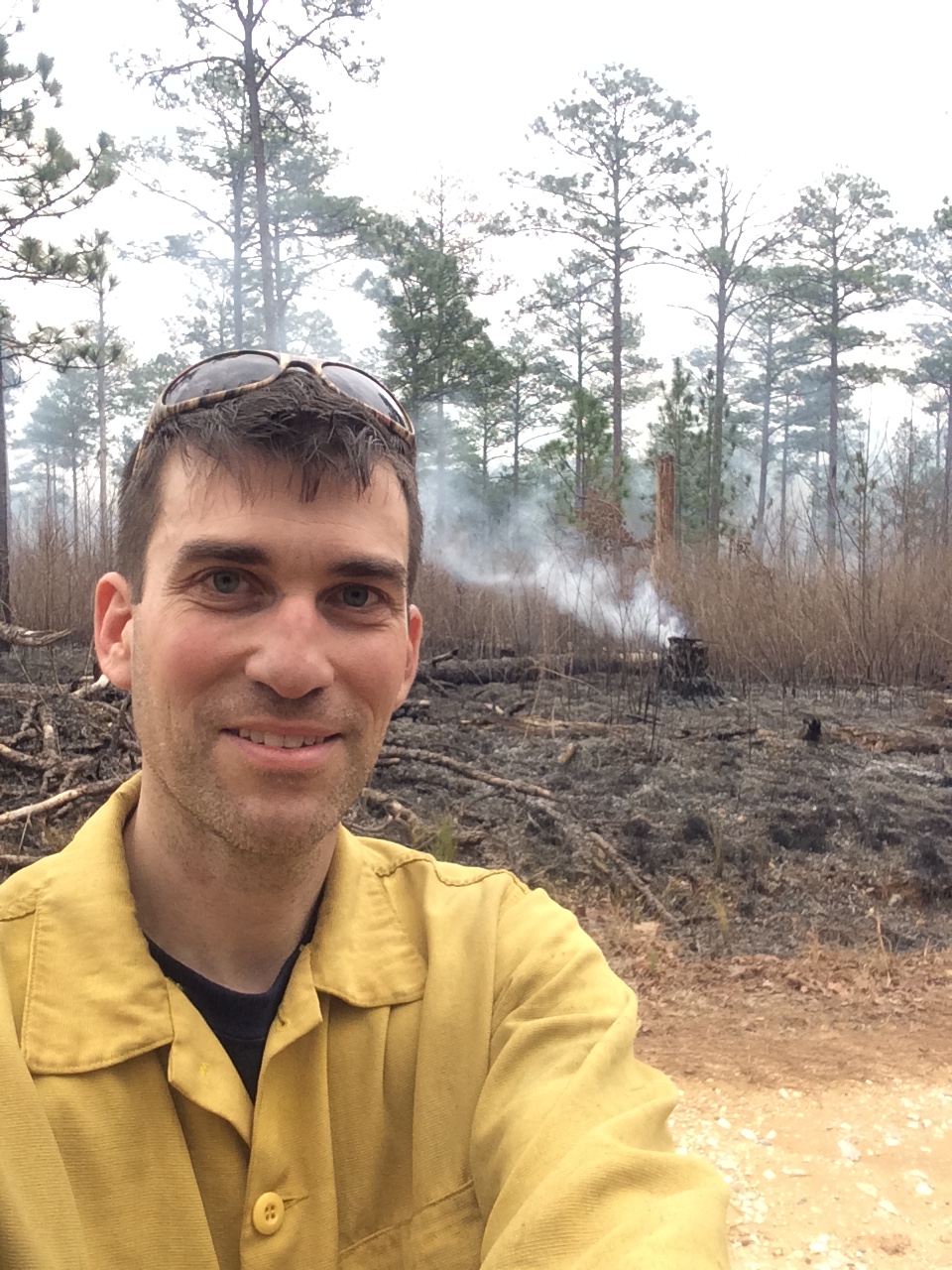
Andrew Edelman, Ph.D.
Professor of Biology, Graduate Program Coordinator, & Co-director of Wildlife Ecology Certificate Program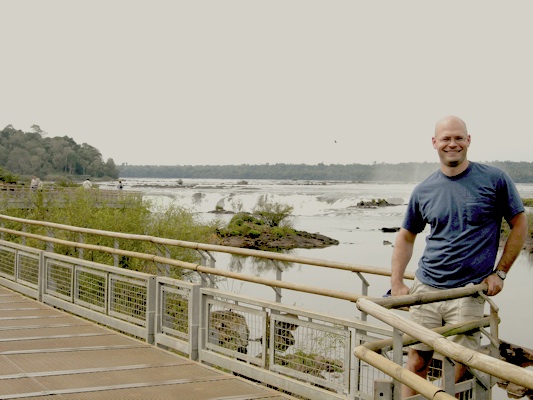
Frank Fontanella, Ph.D.
Professor of Biology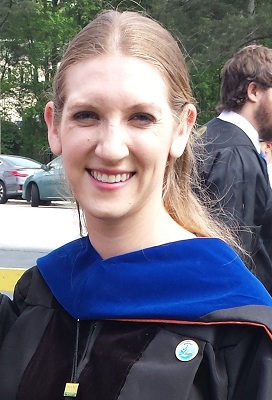
Janet Genz, Ph.D.
Professor of Biology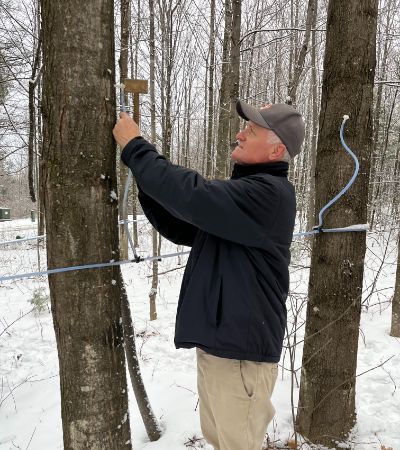
Joe Hendricks, Ph.D.
Professor of Biology & Co-Director of the Wildlife Ecology Certificate Program
Melissa Johnson (Cavallin), Ph.D.
Professor & Undergraduate Program Coordinator
William J. Kenyon, Ph.D.
Professor of Biology & Co-Director of Microbiology Certificate Program
Mautusi Mitra, Ph.D.
Professor of Biology
Sara Molesworth-Kenyon, Ph.D.
Professor of Biology & Co-Director of Microbiology Certificate Program
David Morgan, Ph.D.
Professor of Biology
Nancy Pencoe, Ph.D.
Professor of Biology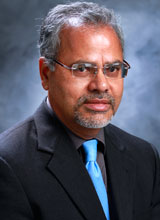
Satyanarayana Swamy-Mruthinti, Ph.D.
Professor of Biology
Christopher Tabit, Ph.D.
Professor of Biology
Henry Zot, Ph.D.
Professor of BiologyGuidelines for Admittance
- All graduate applicants must complete the online Graduate Application. A current application fee of $55 is required.
- Applicants should also review the Graduate Studies Website for individual program specific requirements and tasks that must be completed prior to admission. See Graduate Studies Application Process.
- International applicants are subject to additional requirements and application deadlines. See Procedures for International Students.
- Official transcripts from all post-secondary schools attended are required and should be sent directly to the UWG Graduate Admissions Office.
Program Specific Admittance Guidelines
A student entering the M.S. in Biology program is expected to have an undergraduate degree in biology. Students without a degree in biology or lacking specific background courses in biology and related sciences may need to complete undergraduate courses to compensate for deficiencies.
- Minimum GPA of 2.8 or higher
- Resume detailing academic, work, and volunteer experience.
- 2 letters of recommendation, preferably from reviewers familiar with the applicant’s academic performance.
- A one-page narrative statement including three components:
- 1) reason(s) for pursuing an M.S. in Biology;
- 2) the specific biological sub-disciplines of interest; and
- 3) the desired degree track (thesis or non-thesis). If the non-thesis track is desired, indicate if you are pursuing the biomedical sciences concentration.
Thesis-track applicants should ideally secure a thesis advisor from the biology faculty before applying. Prospective students can identify potential advisors by reviewing faculty web pages and contacting faculty with aligned research interests.
Application Deadlines
Specific Graduate Admissions Deadlines are available via the Graduate School
* Application, app fee, and document deadline
See The Scoop for more specific deadlines.
Admission Process Checklist
The Graduate Studies Application Process checklist is available here
Send official transcripts and admission documents to:
Graduate Admissions
University of West Georgia
Mandeville Hall
Carrollton, GA 30118
One exception: If you will not ever be traveling to a UWG campus or site, you may apply for an Immunization Exemption. Contact the Immunization Clerk with your request.
Contact
Graduate School
graduate@westga.edu
678-839-1394
Program Questions
biology@westga.edu
678-839-6547
Specific dates for Financial Aid, Fee Payments, Registration, Start/End of term, Final Exams, etc. are available in THE SCOOP.
Students will communicate scientific information through the acquisition, organization and presentation of scientific information in written and/or oral form.
